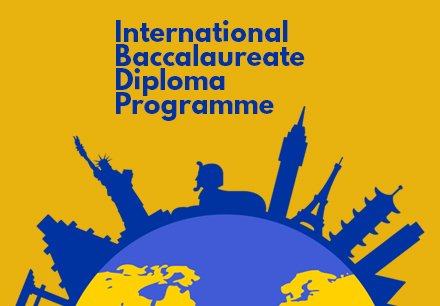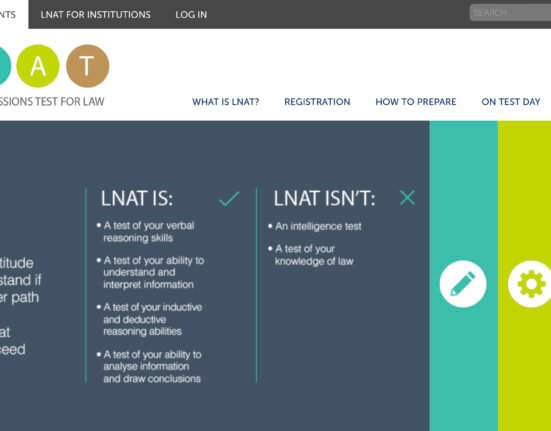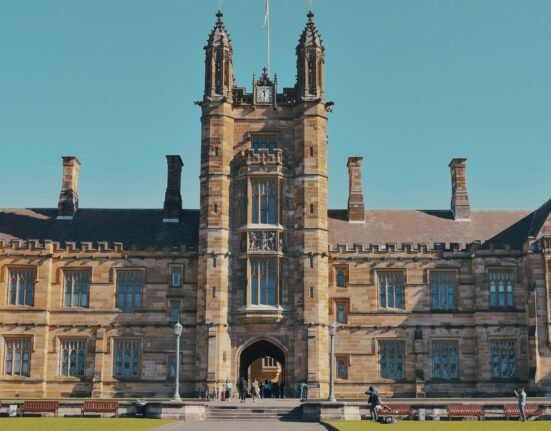Imagine this: Greek students, sitting in classrooms not just learning for exams but preparing to thrive in a globalized, interconnected world. That’s the promise of the International Baccalaureate (IB) Diploma Programme, and it’s coming to public schools in Greece.
Starting in September 2026, this transformative initiative will begin in select Model Lyceums, offering students access to one of the world’s most respected educational frameworks—at no cost.
This isn’t just a reform; it’s a game-changer for education in Greece, and as an educator, I can’t help but feel excited about what this means for our students.
Why the IB Matters for Greek Students
For years, the IB Diploma has been the gold standard in secondary education, yet it’s only been accessible to private school students. That’s about to change. By introducing the IB into public Model Lyceums, Greece is opening doors for students to dream bigger and aim higher.
Here’s what makes the IB stand out:
✅ A Pathway to Top Universities: The IB Diploma is recognized by leading universities worldwide. Greek students will have more opportunities to study abroad or secure placements in prestigious institutions without the added stress of entrance exams.
✅ Real-World Skills: The program emphasizes critical thinking, research, and collaboration—skills that shape future leaders, innovators, and problem-solvers.
✅ English-Immersive Education: Conducted entirely in English, the IB prepares students for global academic and professional environments—a priceless advantage for those pursuing international careers.

What This Means for Students in Greek Schools
This change is a breath of fresh air for Greece’s public education system. Students in Model Lyceums—already known for their high academic standards—will now have access to a curriculum that goes beyond textbooks and tests.
As someone who has seen the transformative power of the IB firsthand, I can tell you this isn’t just about academics. It’s about shaping students into well-rounded, socially responsible individuals who aren’t afraid to tackle complex challenges.
Core elements of the IB include:
Theory of Knowledge (TOK): Encourages students to reflect on how knowledge is constructed.
Extended Essay (EE): Requires university-level research and analysis.
Creativity, Activity, Service (CAS): Focuses on real-world application through community engagement.
Breaking Barriers
One of the most exciting aspects of this initiative is its inclusivity. For years, the IB has been seen as an elite program reserved for private schools. Now, public school students—many of whom might never have had this opportunity—will gain access to a world-class education.
Similarly, for expatriates moving to Greece, the IB in public schools presents a compelling option. The English-language instruction and globally recognized qualifications make it particularly attractive to families seeking seamless transitions in their children’s education.
And let’s not underestimate the significance of offering this program for free. The expansion of the IB curriculum to public Model Lyceums could reduce the financial burden of private schooling while maintaining access to a world-class education. It’s a bold step toward leveling the playing field, ensuring that talent and ambition—not just financial means—determine a student’s future.
A Vision for the Future
The IB isn’t just about what students learn; it’s about how they learn. It teaches them to ask questions, challenge assumptions, and think critically about the world around them. These are the traits we need in tomorrow’s leaders.
Imagine a teenager in Athens or Thessaloniki, not just memorizing facts but crafting a research essay that rivals university-level work. Picture a group of students organizing a community project through CAS, discovering their potential impact locally and globally. The International Baccalaureate (IB) develops lifelong learners who thrive and make a difference.

The Challenge of Transitioning to the IB: A New Mentality for Greek Students
While the introduction of the IB in Greek public schools is undoubtedly a bold and progressive step forward, it does not come without challenges—particularly for students accustomed to a more traditional learning approach.
Key challenges include:
🟠 From Memorization to Inquiry-Based Learning: Greek students have long been trained in a system that prioritizes rote memorization over critical thinking. The IB’s emphasis on continuous assessment and interdisciplinary learning requires a significant mental shift.
🟠 The Demands of IB Core Components: Courses like TOK, the Extended Essay, and CAS demand in-depth analysis, research, and creativity—which can feel daunting at first.
However, these challenges are precisely what make the IB transformative. This shift underscores the importance of guidance. Success in the IB doesn’t come solely from intellectual ability but also from building meaningful connections—with peers, mentors, and tutors.
The Role of Support and Mentorship
A supportive tutor can be instrumental in helping students navigate the demanding curriculum. The IB isn’t just about mastering content—it’s about shaping a growth mindset and unlocking student potential.
A good tutor doesn’t just teach subjects; they understand students and adjust the learning process accordingly. With the right support, Greek students can thrive in the IB, overcoming challenges and developing into confident, independent thinkers.
A Leap Forward for Greek Education
As someone deeply passionate about education, I see this as a turning point for Greece. The IB Diploma Programme in public schools will not only elevate our students’ futures but also position Greece as a leader in progressive, inclusive education.
This isn’t just about academic success; it’s about building confidence, nurturing curiosity, and fostering a sense of purpose in our young people. And for the first time, this kind of opportunity isn’t limited to a privileged few—it’s open to all students in Model Lyceums. That’s what makes this initiative truly groundbreaking.
So here’s to the future—a future where Greek students have the tools, the knowledge, and the courage to achieve greatness. This is just the beginning, and I can’t wait to see what they accomplish.








